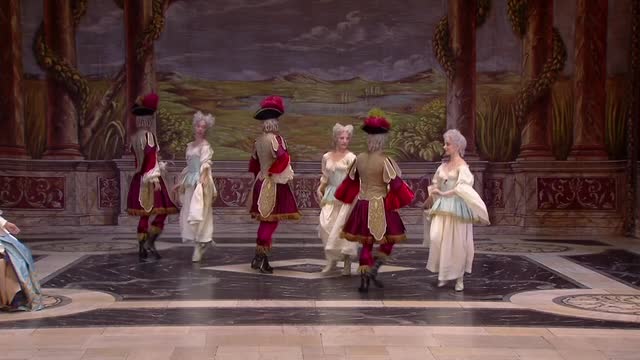Adolphe Adam must be best remembered for his music for the ballet Giselle. Born in Paris in 1803, he was the son of Louis Adam, a native of Alsace, who earned his son's later description of him as the founder of the French school of piano playing. Louis Adam taught at the Paris Conservatoire from 1797 until 1842 and included among his pupils Kalkbrenner and other musicians of future distinction. Adolphe Adam had varied schooling, eventually as a boarder in a parental attempt to induce better application. After private coaching, however, he was able in 1819 to enter the organ class of Benoist at the Conservatoire. Nevertheless, as he later admitted, his chief ability at this time was in improvisation and it was only when he was allowed to take over his older contemporary Halévy's class in solfège that, by teaching, he was able to acquire this necessary and basic knowledge. He studied counterpoint with Anton Reicha but he owed the greatest debt in the end to Boieldieu, who gave him every encouragement. In spite of this he failed to win the expected Grand Prix de Rome, taking instead the deuxième second Grand Prix in 1825 with his setting of Ariane à Naxos. During these years, however, he was able to earn a living as an organist, following the example of so many French composers, and to gain experience of the theatre first as an unpaid triangle-player at the Gymnase Dramatique and later as timpanist and chorus-master. As a composer he began to provide material for vaudevilles and collaborated with the librettist Eugène Scribe, whom he had met while travelling in Switzerland, in an opéra-vaudeville for the Théâtre du Gymnase. His first serious work for the theatre was the one-act opera Pierre et Catherine, with a libretto by Henri Vernoy de Saint-Georges, given at the Opéra-Comique. A year later, in 1830, he wrote music for the ballet La Challe blanche ('The White Cat'), described as an English pantomime, for the Théâtre des Nouveautés. He was, in these years, rapidly making a name for himself and in 1832 was invited to London to provide music for a military spectacle at Covent Garden, His First Campaign and for the historical melodrama The Dark Diamond. The following year he returned to London for the performance of the ballet Faust at the King's Theatre. His first significant international success in the opera house came in 1836 with the comic opera Le Postillon de Lonjumeau. In 1839 he accepted an invitation to St Petersburg to provide music for Filippo Taglioni and his daughter Marie and on his return was asked by Friedrich Wilhelm IV of Prussia to write a work for the Berlin theatre, resulting in another ballet, Les Hamadryades, also for Taglioni.
It was in 1841 in Paris that Adam enjoyed what has proved his most lasting success with the music for the ballet Giselle ou Les Wilis, the first great Paris success also for Carlotta Grisi. This was followed in 1842 by La folie fille de Gand a work that was equally well received, eclipsing the opera Le Guerillero by Ambroise Thomas, mounted on the same evening. His necessary relationship with the Opéra-Comique had prospered under the director François-Louis Crosnier. Adam was less fortunate in the latter's successor, the former censor André-Alexandre Basset, who vowed never to allow anything by Adam to be staged by the company. It was this feud that persuaded Adam, with Crosnier's support, to revive a plan to establish another opera house for younger composers. The new theatre of the Opéra-National opened in 1847, after Adam had raised a considerable loan for the project. The time was inopportune. The political disturbances of 1848 led to the closure of the house and to Adam's financial ruin. He was now obliged to earn what living he could from music criticism to meet his immediate needs, but this was not the end of his career as a composer. In 1849, the year of his father' s death, he was appointed professor of composition at the Conservatoire and he continued to compose for the theatre until his death, winning particular success with Si j'étais roi ('If I were king') at the new Théâtre-Lyrique in 1852. By 1853 he had paid off his debts but continued working until his sudden death in 1856. In his posthumously published autobiographical sketches he admitted that it was his work as a musician that was his sole passion and pleasure, without which he would have died of boredom.
| Title | |
| HANDEL, G.F.: Acis and Galatea (Royal Opera House, 2009) | |

|
HANDEL, G.F.: Acis and Galatea (Royal Opera House, 2009)
Composer:
Handel, George Frideric
Artists:
Age of Enlightenment Orchestra -- Agnew, Paul -- Cizmar, Jan -- Cuthbertson, Lauren -- Hamilton, Melissa -- Hogwood, Christopher -- Kay, Paul -- McRae, Steven -- Moore, Steve -- Niese, Danielle de -- Park, Ji-Min -- Perkins, Julian -- Rose, Matthew -- Royal Ballet, Covent Garden -- Royal Opera House Chorus, Covent Garden -- Skidmore, Andrew -- Underwood, Eric -- Watson, Edward -- Workman, Charles
Label/Producer: Opus Arte |
| LULLY, J.-B.: Atys [Opera] (Opera Comique, 2011) | |

|
LULLY, J.-B.: Atys [Opera] (Opera Comique, 2011)
Composer:
Lully, Jean-Baptiste
Artists:
Agnew, Paul -- Arts Florissants, Les -- Auvity, Cyril -- Azzaretti, Jael -- Christie, William -- Compagnie Fetes Galantes -- d'Oustrac, Stephanie -- Daneman, Sophie -- De Negri, Emmanuelle -- Deletre, Bernard -- Mauillon, Marc -- Richter, Bernard -- Rivenq, Nicolas
Label/Producer: Naxos |
